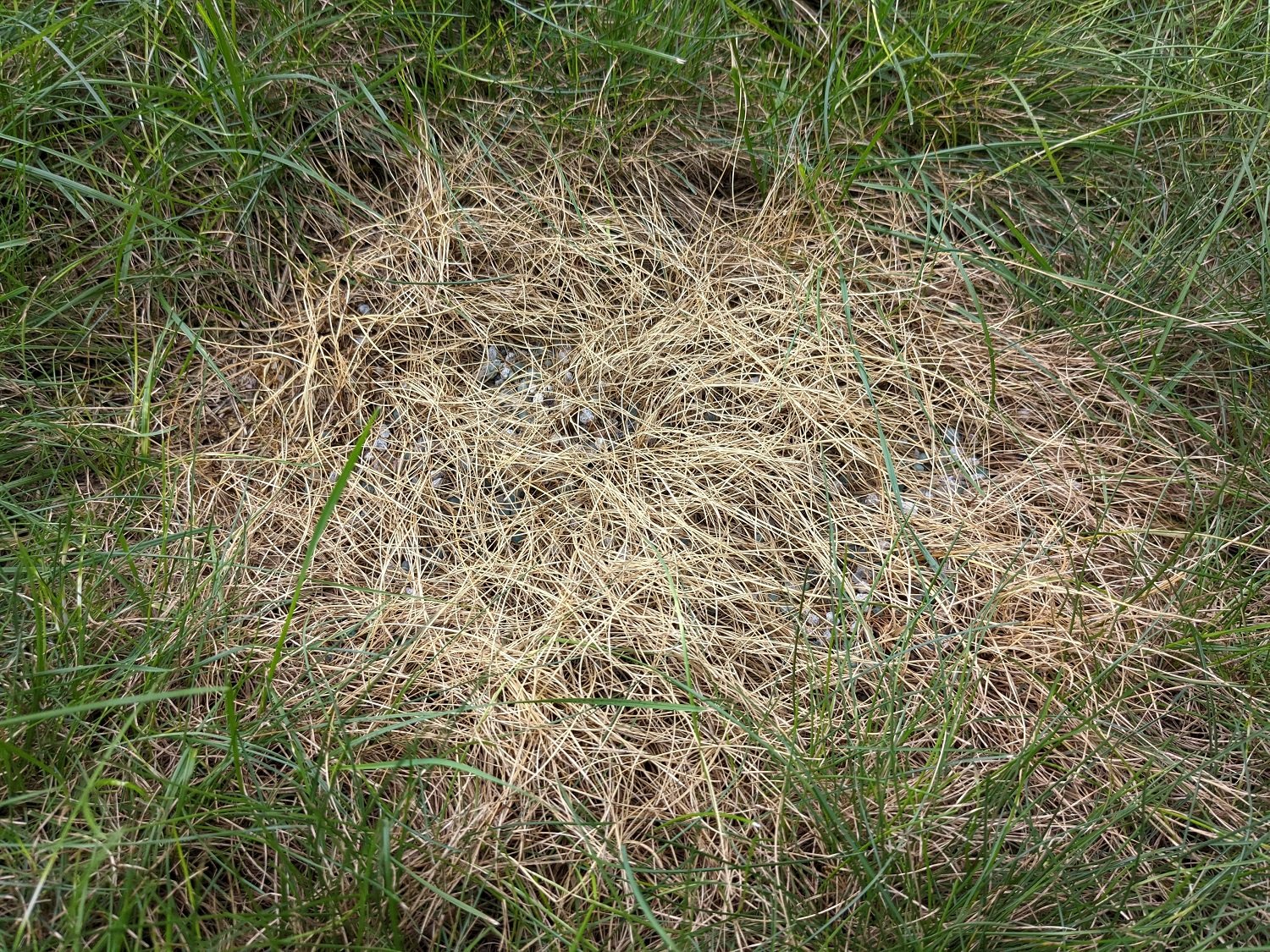
While lawn fertilization is a wonderful treatment that can do tremendous good for the health of your turf, an over-fertilized lawn is just the opposite. Whereas proper fertilization typically provides the lawn with nutrients that help it to grow greener and thicker (Nitrogen, Phosphorus, and Potassium), too much of a fertilizer product can actually harm or even kill your turf.
If you have ever seen fertilizer burn you know that it’s an eyesore. It can take time to recover a burned spot on your lawn. But if you’ve over-applied product to the entire lawn, you might even be wondering if there’s a way to reverse over-fertilization.
In this article, we’ll talk about the over-fertilization lawn symptoms you should look for and how to fix an over-fertilized lawn.
We’ll also discuss when it might make sense to start over and potentially even hire a pro so that you can avoid over-fertilized lawn problems in the future. We understand this can be incredibly frustrating (and costly), and we want to help set you up for success.
As you can tell from the introduction to this story, it’s quite possible to over-fertilize a lawn. In fact, it’s a fairly common DIY mistake.
One of the reasons for this has to do with the fact that many of us refer to lawn fertilizer as “food” for the lawn. When thought of in this context, it seems difficult to believe that you could apply too much. But as with many things in life, too much of a good thing can actually be a bad thing!
On top of that, it’s not all that easy to apply fertilizer at just the right rate. It’s quite nuanced actually. When a lawn care professional is applying fertilizer products, they’re using expertly calibrated equipment to put down just the right amount. But this is honestly more complicated than it seems.
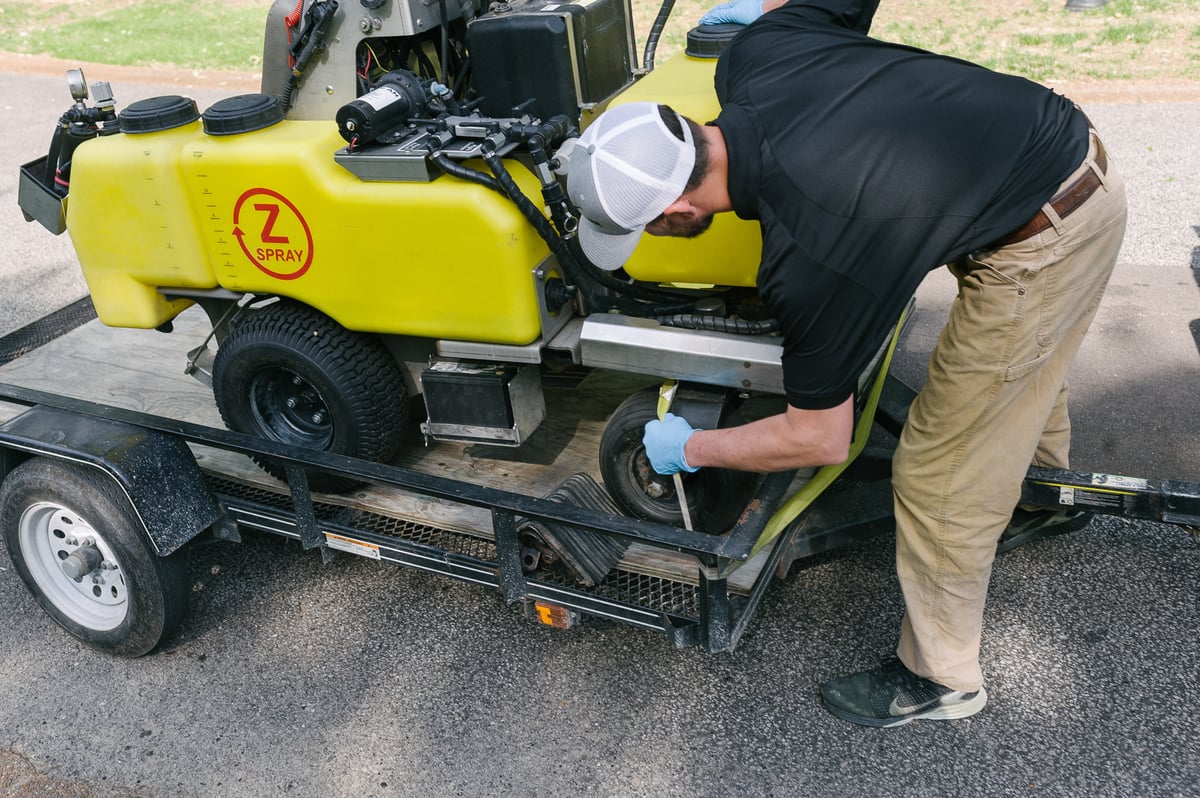
We know that homeowners often think of it as just dumping bags of product on the lawn but that’s simply not the case.
Of course, sometimes it’s not just the over-application of the product that’s a problem. It could also be that you have compacted soil that isn’t draining well. When this happens, the fertilizer can begin to accumulate and cause problems over time.
If you have pets, dog urine can also be part of the problem. A lot of people are surprised to learn that dog urine contains a lot of nitrogen and can burn your lawn by itself. When coupled with fertilizer, it’s more than the lawn can handle.
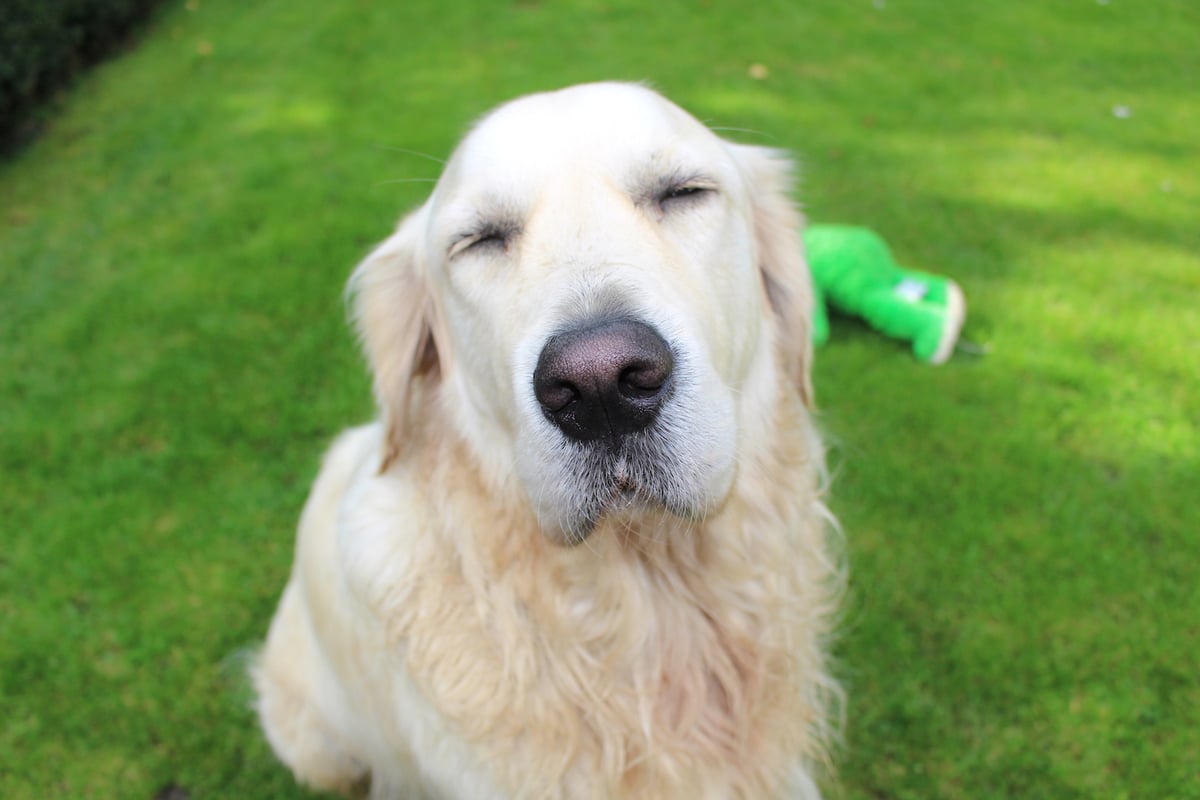
A lawn that is unhealthy and already struggling is also more susceptible to being over-fertilized. If you haven’t been keeping up with regular lawn care, suddenly trying to fertilize the lawn and make up for lost time can do more harm than good. You can’t try to use fertilizer as an overnight fix for a stressed lawn.
If you’ve accidentally spilled a bag of fertilizer before, you probably already know what fertilizer burn looks like. It shows up as scorched areas of the lawn (literally looked “burned”) and is typically crispy and yellow (or brown).
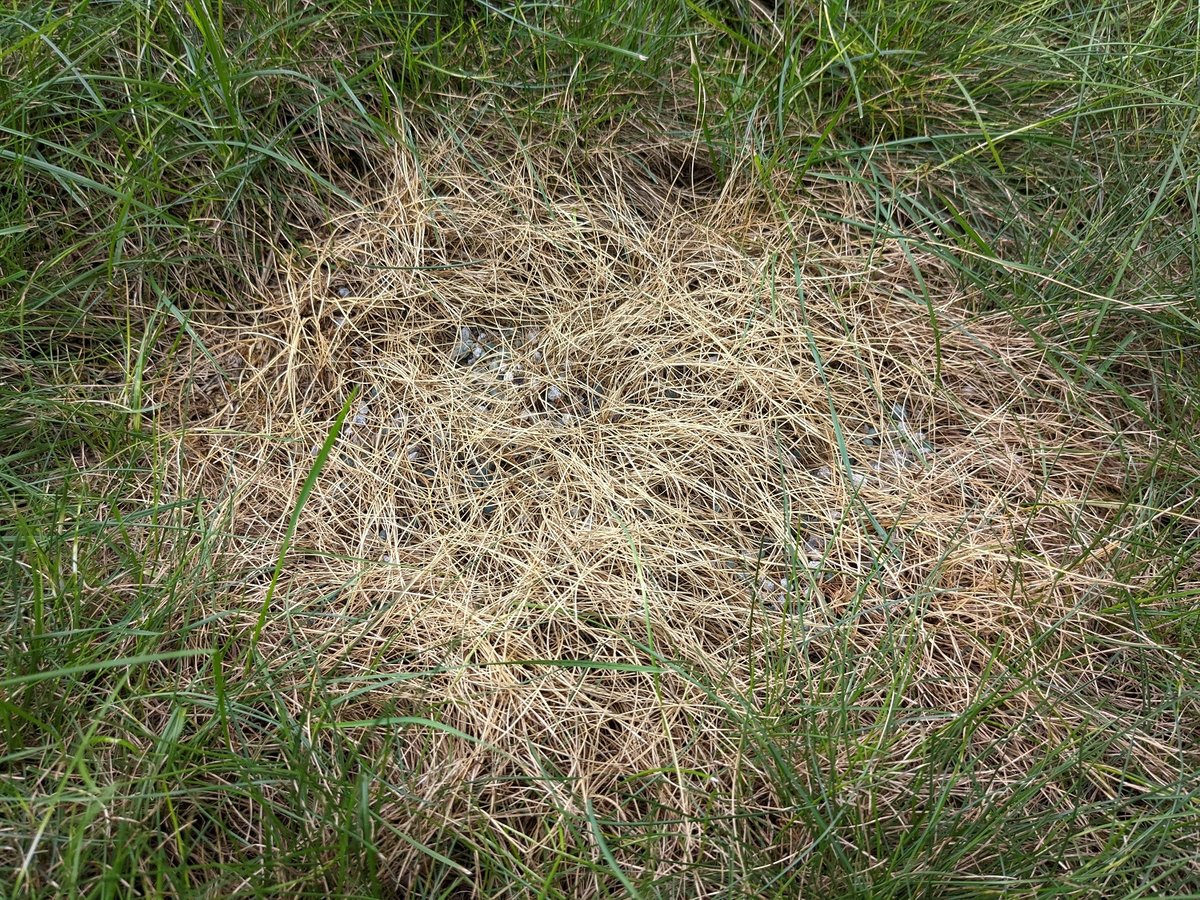
If you’ve overapplied to the entire lawn it might not be enough to burn it but you might notice symptoms such as brown or yellow tips on the grass blades. You might also notice that you’re not getting new growth as you should be. Or, you might find that the fertilization product is actually crusting on the top of the soil instead of penetrating to the lower surface.
Though it may look like it is, an over-fertilized lawn is not always dead. If the grass is yellowed, it’s possible it can still be saved. But if the lawn has turned completely brown, it may potentially be dead. Some homeowners do have a difficult time telling the difference between grass that is dead and grass that is dormant. This is something else to keep in mind.
If you suspect that you (or maybe even a lawn care pro) have over-fertilized your lawn, you might be wondering what you can do to reverse the damage.
The first thing that you should do is inspect the damage. Is the entire lawn impacted or just areas? If it’s in areas where your dog commonly uses the bathroom, then you might need a different solution, such as encouraging your pet to go somewhere else. We’ve also had homeowners who have created dog-friendly lawns by incorporating mulched areas or other spots where your pets won’t burn the turf.
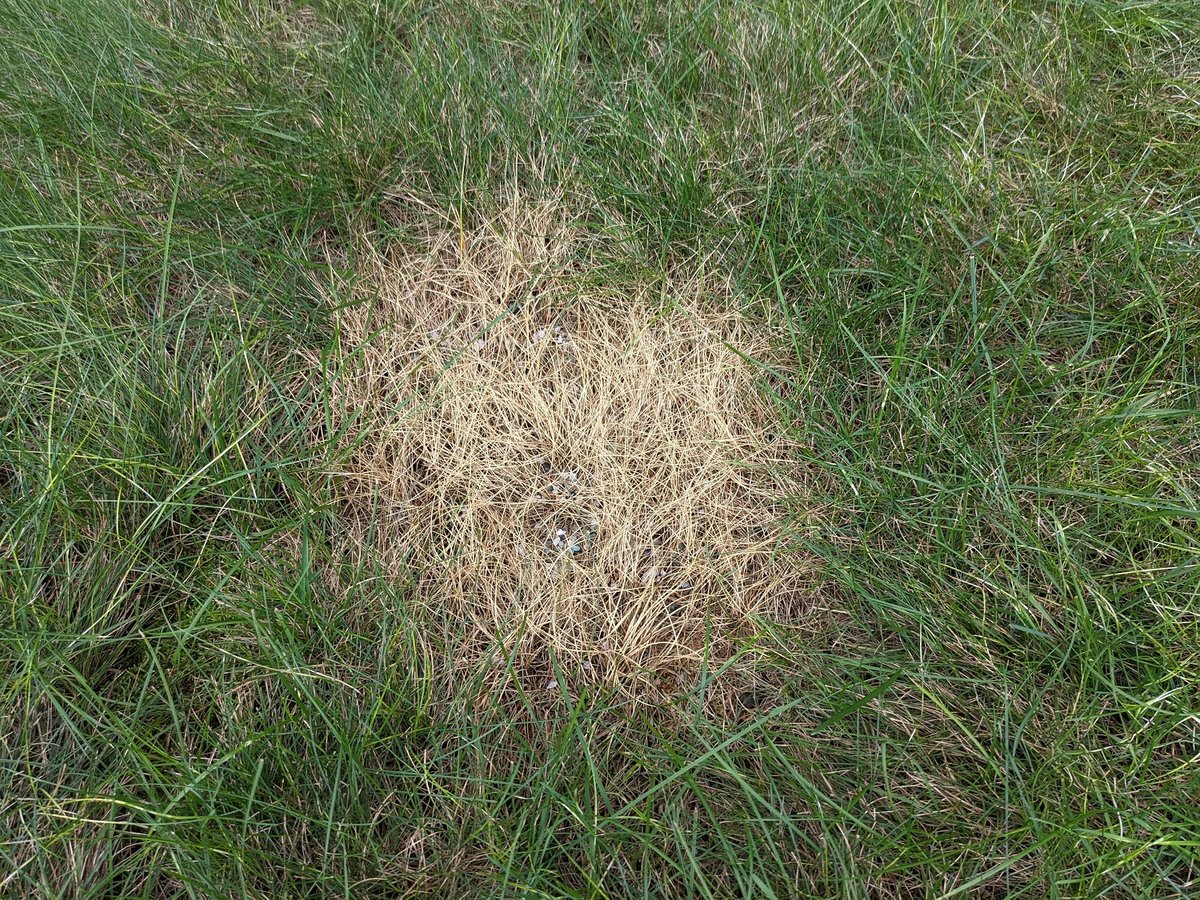
If the problem spreads throughout the lawn, you should also look closely at how much of the grass blades are impacted. Are the grassroots still okay? Are just the tips of the blades burned? If it’s the latter, and the roots still look healthy, you might be able to reverse the over-fertilization.
Here are some steps that you can take.
Sometimes, the solution is to start over. If you aren’t getting new growth on your lawn after over-applying fertilizer product, you should rake out the dead areas and prepare to start over with new growth.
Aeration and overseeding can be one way to get new grass growing in your lawn. If you still have some growth and the damage is mostly in patches, this process should work well to restore lawn areas.
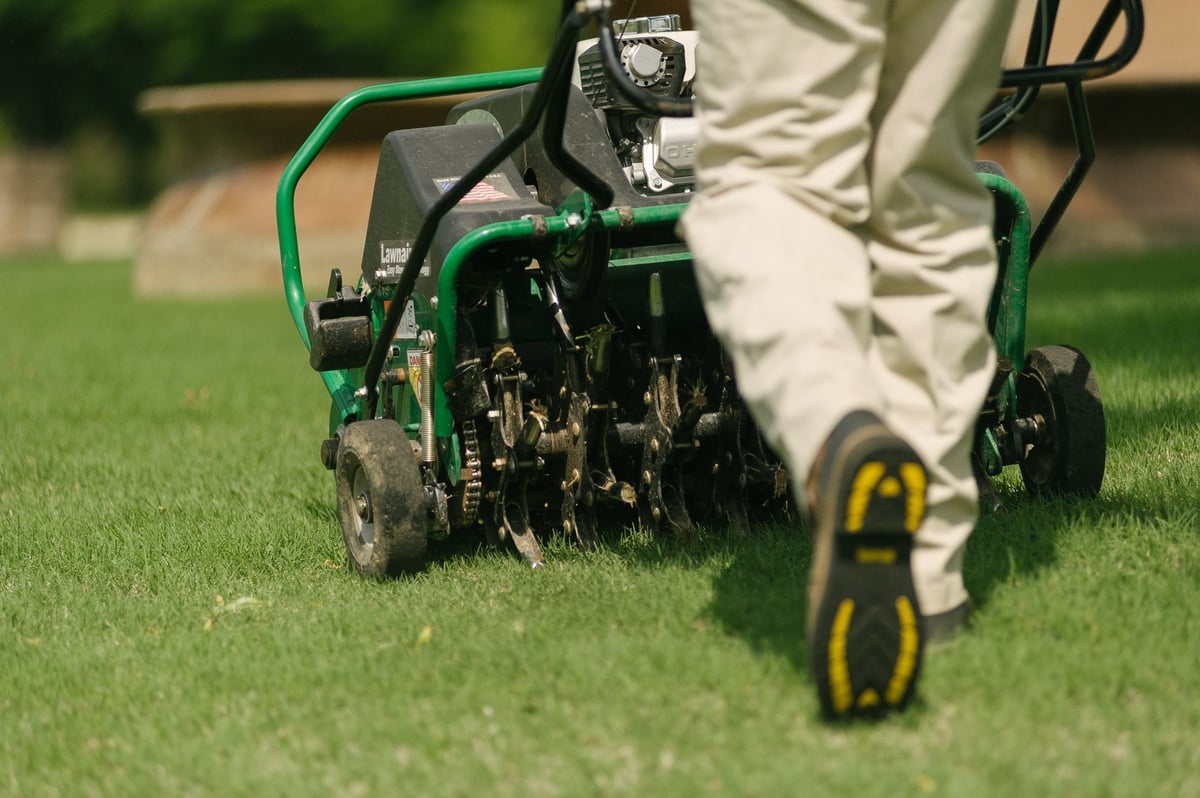
However, if your lawn was completely decimated and you’re dealing with more dirt than you are grass, you might want to consider sodding. This is a service offered by landscaping companies like our sister company, Michael Hatcher & Associates. It’s essentially a way to get an “instant lawn,” rather than going through the process of re-growing all of the grass.
But it’s expensive, particularly if you need an entire lawn sodded.
In the end, it will all boil down to expectations. If you’re able to be patient and wait for the grass to re-grow, you can eventually fix an over-fertilized lawn that’s died off by growing new seed.
As we said at the beginning of this article, fertilization is a really important service that does a lot of good for lawns. But that’s all contingent on it being applied properly (at the proper rate of application).
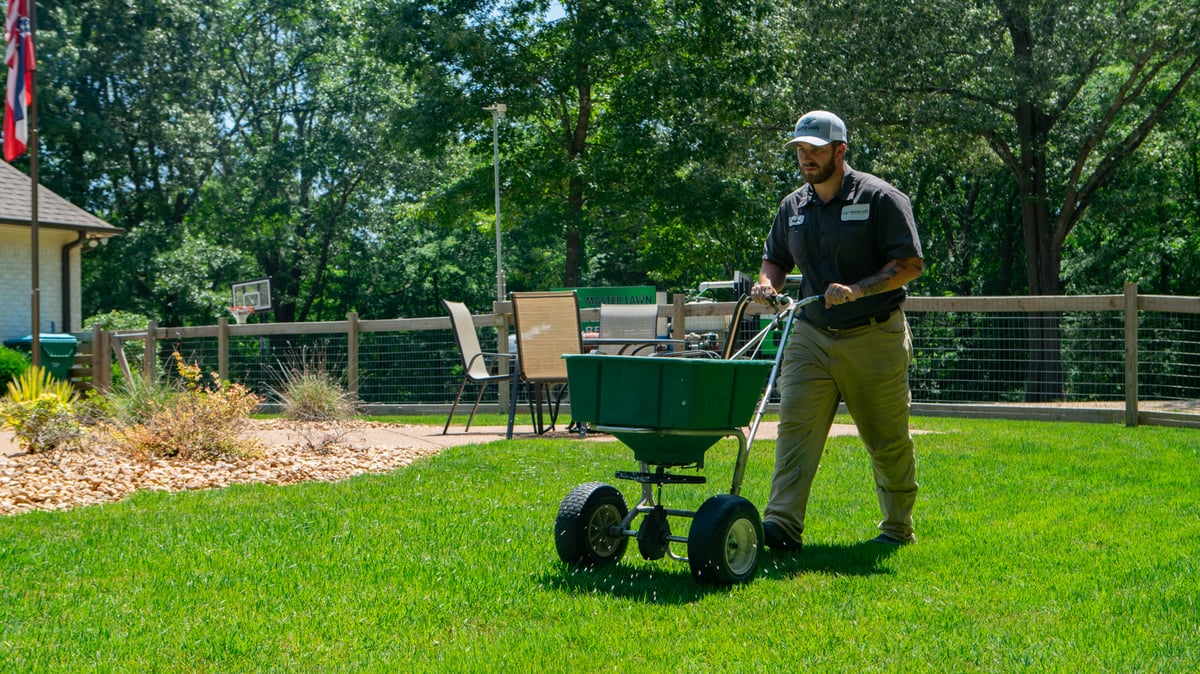
This is something that lawn care experts are trained to do. But we know that even some lawn care pros make mistakes sometimes. Not all lawn care companies are as focused on training and teaching their technicians best practices. Plus, sometimes there can be other issues at play. As we mentioned, urine burn is a real problem for dog owners and can cause spots that look like fertilizer burn.
And sometimes brown spots aren’t fertilizer burn at all but a whole other problem such as a pest invasion or even a turf disease.
Frankly, lawn care can be pretty complicated, and diagnosing and fixing issues is no small feat. That’s why turning to a well-trained pro can be so beneficial.
If you’re currently performing your own fertilization services or you have a lawn care pro working on it but doing a subpar job, it might be time to consider a change.
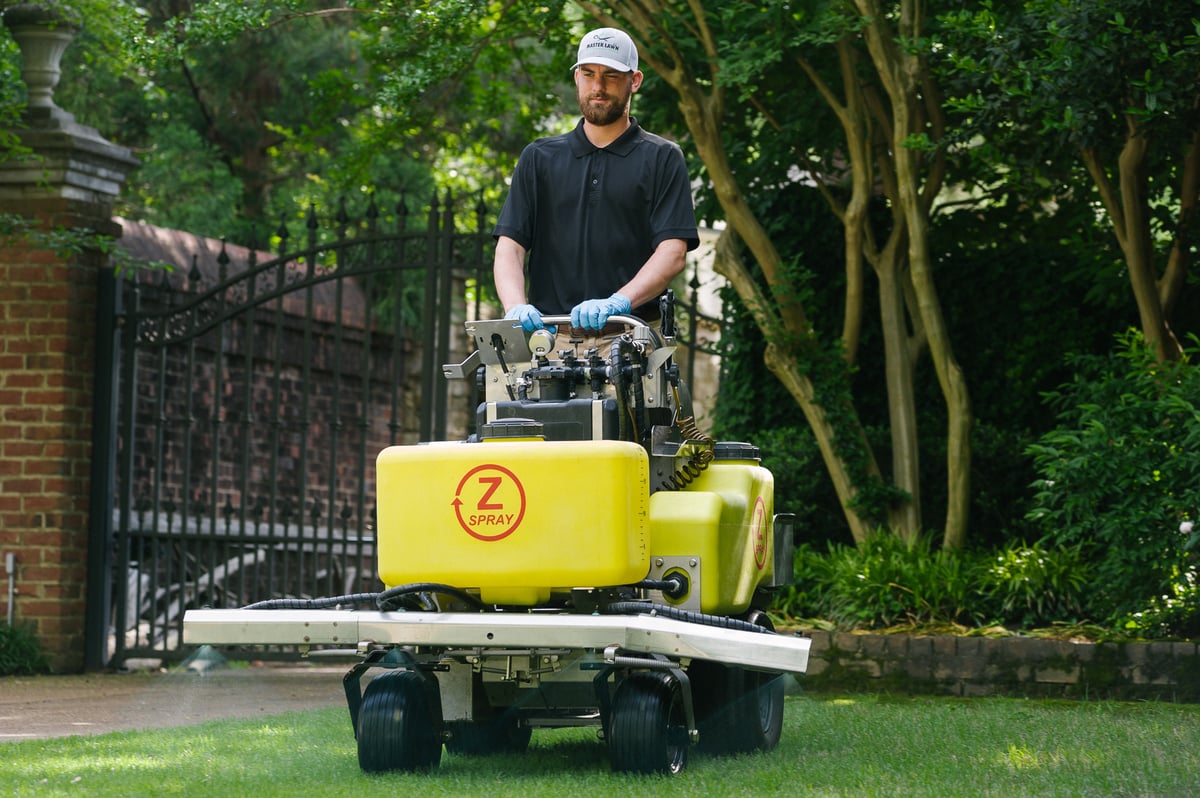
One of the benefits of working with a top-of-the-line professional is also the fact that they’ll be using higher quality, commercial-grade fertilizer on your lawn. These professional fertilizers are more than just the N-P-K (Nitrogen, Phosphorous, and Potassium) that you’re used to. Some of the professional formulations also have additional micronutrients, bio-nutritional materials, coatings for slower release, and more. With professional-grade products, you’ll ultimately get better results.
At the end of the day, lawn fertilization is really just one of many important lawn care services that your turf needs to perform its best.
A good program is going to include other important services like weed control, lime and calcium, and options for disease and pest treatments, too.
It’s also going to evolve with time. After all, you don’t want any of your services (including fertilization) to become stagnant and not adapt to your growing and changing lawn.
Like every aspect of our lawn care programs, our lawn fertilization approach is re-evaluated each year in order to ensure that it’s continually producing the best possible results. That means if there are tweaks that we can make to the program, including new and better products as they become available, we’ll make them.
We are constantly evolving all aspects of our lawn care program as needed.
When it comes to getting the most out of a service like lawn fertilization and avoiding mistakes such as over-fertilizing a lawn, you want a pro like Master Lawn on your side.
There’s no reason you have to go on living with a lawn that isn’t as good as it could be. By adding a lawn care program that includes professional fertilization, you can finally get the beautiful grass that you’ve been wanting.
Are you ready to let a professional handle your lawn care services near Memphis, TN? Talk to a lawn care expert, choose from 3 program options, and become the master of your lawn.
Michael Hatcher is president of Michael Hatcher & Associates.
These Stories on Lawn Care
8255 Center Hill Rd
Olive Branch, MS 38654
8164 MS-178
Olive Branch, MS 38654
Phone: (901) 445-9336
Fax: (901) 853-7353
Copyright © Master Lawn | All Rights Reserved.